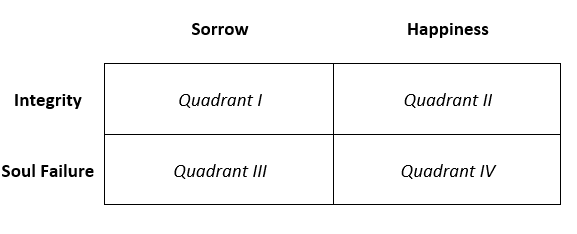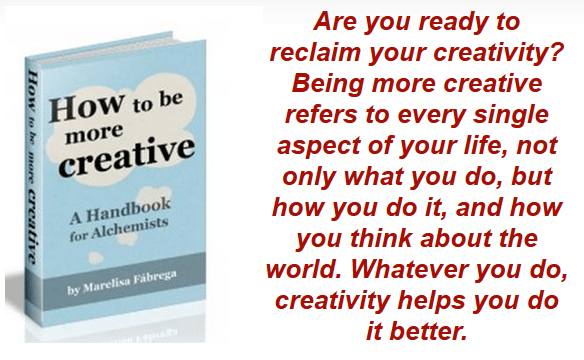
Strive to lead a meaningful life.
Much has been said lately about the pursuit of happiness. But what about the pursuit of meaning? It turns out that pursuing meaning may have more of an impact on long-term life satisfaction than pursuing happiness.
If you make your life more meaningful, you’ll enjoy all of the following benefits:

- Having meaning in your life will make you healthier.
- It will fill you with energy and vitality.
- You’ll be better able to cope with adversity.
- It will make you more productive.
- Your life satisfaction will increase.
- You’ll receive a self-confidence boost and feel better about who you are.
- It will increase your ability to achieve the flow state – that state in which time seems to stand still and you feel “at one” with what you’re doing.
- If your life feels meaningful to you this will allow you to satisfy your human need for value.
- People who believe that their lives have meaning live longer than those who don’t.
So, what is a meaningful life? According to a paper published in 2016 in the Review of General Psychology, a meaningful life contains three features:
- Purpose – having and trying to achieve life goals which you consider to be important and of significance.
- Comprehension – Making sense of the events that have taken place in your life and noticing how they weave into a coherent whole.
- Mattering – the belief that your existence is valuable.
That is, a meaningful life has purpose, coherence, and significance. Below you’ll find 9 ways to make your life more meaningful.
1. Make Your Life More Meaningful By Having a Purpose
As you can see from the three features of a meaningful life that I listed in this post’s introduction, you should strive to live a life on purpose. Emily Esfahani Smith, author of The Power of Meaning: Finding Fulfillment in a World Obsessed with Happiness, explains that to find your purpose you should do the following:
- Begin by identifying your strengths.
- Then, look for ways to use your strengths in a way that will serve and benefit others.
People with a meaningful life can answer this question: “What’s your purpose?” If you currently feel that you don’t have a purpose, get to work on finding one. Your life will immediately become more meaningful.
2. Reframe How You See Your Job/Occupation
In the Massive Open Online Course, “Science of Success: What Researchers Know that You Should Know“, Paula J. Caproni, Ph.D., explains that getting results at work isn’t enough. She adds that the years that you spend working will be much better spent if you believe that the work that you do matters.
Caproni indicates that researchers have found that when we’re engaged in what we believe to be meaningful work, all of the following happens:
- We take greater pride in our work.
- We feel more responsibility for work outcomes.
- We are better able to handle stress.
- We’re more likely to stay motivated.
If you currently don’t find your job meaningful, then look for ways to reframe how you see your job or occupation. Think of the well-known story of the NASA janitor. In 1962, then-President John F. Kennedy was visiting the NASA Space Center. He noticed a janitor sweeping the hallway and asked him, “What are you doing?”
The janitor responded as follows: “Well, Mr. President, I’m helping to put a man on the moon.” He wasn’t just cleaning, or earning a paycheck. Instead, this janitor saw himself as someone who was playing a role in the grand vision of sending a man to the moon.
I remember when I worked for the Panama Canal Authority (PCA)—the agency that began running the canal after the US transferred it to Panama in the year 2000—I felt that I was doing something meaningful. This is how I framed my job at the PCA:
- I was helping to prove that Panamanians could run the canal as well as, or even better than, the US could.
- In addition, I was helping to take care of Panama’s patrimony for future generations.
Stop for a moment and think of your current job or occupation. Then, ask yourself how you can think of it in a way that will make you feel that what you’re doing has meaning.
3. Choose Your Friends Wisely
Of course, our sense of self-worth should come from ourselves. However, human beings are social creatures, and how we feel about ourselves is often impacted by the way in which others treat us. Therefore, to make your life more meaningful, look to surround yourself with people who make you feel that you matter.
Cultivate relationships with those who value who you are.
4. Find a Balance Between Seeking Happiness and Meaning
A lot of the time it seems as if there’s a trade-off between seeking happiness and seeking meaning. After all, happiness often involves doing things that make you feel good in the moment. For example, going dancing; getting a massage; or buying yourself a new tech gadget.
On the other hand, meaningful activities usually involve making sacrifices. Some examples include the following: carrying boxes all weekend as you help your friend to move; studying hard to become a doctor; or saving to be able to pay for an important goal.
Notice that meaningful activities often involve effort and toil. However, meaning allows us to transcend those moments of hardship because we know that we’re pursuing something bigger:
- Strengthening our friendships;
- Gaining the ability to save lives; or
- Savoring the satisfaction of achieving an important goal.
A life that is only about pursuing hedonic happiness is ultimately an unfulfilling life. At the same time, a life that is solely about pursuing meaning—while neglecting the present moment—can be an unnecessarily austere life.
The key is to find that sweet spot between enjoying the present moment—which is often described as happiness–, and pushing on to achieve an important goal, in spite of the discomfort that it may entail, which is meaning.
5. Choose Integrity
As I was doing the research to write this post, I came across the following framework for finding purpose and meaning:

Ideally, you should look for ways to live your life in Quadrant II, in which you’re happy and you’re living with integrity. Quadrant III is basically hell: you’re miserable and you’re living without integrity. Obviously, you should try to avoid this quadrant at all costs.
Where it gets tricky is when you have to choose between Quadrants I and IV.
- Do you choose integrity even if it means living a difficult life?
- Do you choose to lose your integrity in exchange for ease and comfort?
If you want to live a meaningful life, you would choose Quadrant I: living with integrity, even if this has negative consequences for you. An example of this is the Australian Olympic athlete, Peter Norman.
During the 1968 Olympic games, Norman stood in solidarity with the black athletes Tommie Smith and John Carlos when they raised gloved fists during the medal ceremony for the track event to protest inequality. This black power salute rocked the world. Back in Australia, Norman was shunned for his part in the protest.
Norman acted with integrity, although he almost certainly knew what it would cost him. He believed that inequality was wrong, and he played a role in fighting against it, although this made his life more difficult. His life wasn’t easy, but it had meaning.
6. Write Your Life’s Story
Make your life more meaningful by writing down your life’s story. Emily Esfahani Smith —who has already been mentioned above—explains that making a narrative of your life provides clarity.
It offers a framework that goes beyond the day-to-day and allows you to see how different events in your life are contributing to the whole. This will help you to make sense of yourself and of your life.
In addition, creating your life’s story will give you an opportunity to retell your stories in more positive ways. Clearly, you’re constrained by facts, but you can edit your stories and reframe them, so that you can start telling a better story of what your life is about.
Three good themes for your life’s story are the following: redemption, love, and growth.
7. Express Yourself
There’s a lot of people out there pretending to be someone they’re not. After all, the pressure to fit in and to conform is very strong. However, if you’re not allowing yourself to be who you are, then you can’t truly live a meaningful life.
Think of the goals that you’re currently pursuing. Do your goals “sound like you”? Do they reflect your personality? Are they in line with your values? If not, then you need different goals. You can make your life more meaningful by striving to achieve goals that allow you to express who you are.
8. Make a Difference In Small Ways
You don’t have to have a job that involves saving lives, and you don’t have to do something incredibly heroic, in order to have a meaningful life. You can help to make this world a better place–thereby making your life meaningful–in small ways.
Perhaps at the end of your life you won’t be able to say: “I did this one huge, impactful thing that helped others”. But it’s just as noble to be able to say: “I took thousands of tiny actions that made life a little better for others.”
If you want some ideas on how to get started, read my post “25 Small Ways to Change the World”.
9. Think of Your Legacy
Someday, as you lay dying, it will be of great comfort to you to know that you’re leaving a meaningful legacy behind. Sit down and ask yourself what your legacy will be when you’re gone.
If you’re not happy with what your legacy would be if you died tomorrow, get to work on creating a meaningful legacy now. You can get ideas on how to get started by reading my post, How to Leave a Lasting Legacy. Make your life more meaningful by working on your legacy.
Conclusion
You can begin reaping all the benefits of leading a meaningful life by applying the 9 tips above. Live your best life by making it a life full of meaning.





Related Posts:




 Marelisa Fabrega is a lawyer and entrepreneur. She holds a Bachelor of Science in Business Administration from Georgetown University in Washington, D.C., as well as a Juris Doctor from the Georgetown University Law Center. You can learn more about her
Marelisa Fabrega is a lawyer and entrepreneur. She holds a Bachelor of Science in Business Administration from Georgetown University in Washington, D.C., as well as a Juris Doctor from the Georgetown University Law Center. You can learn more about her 





